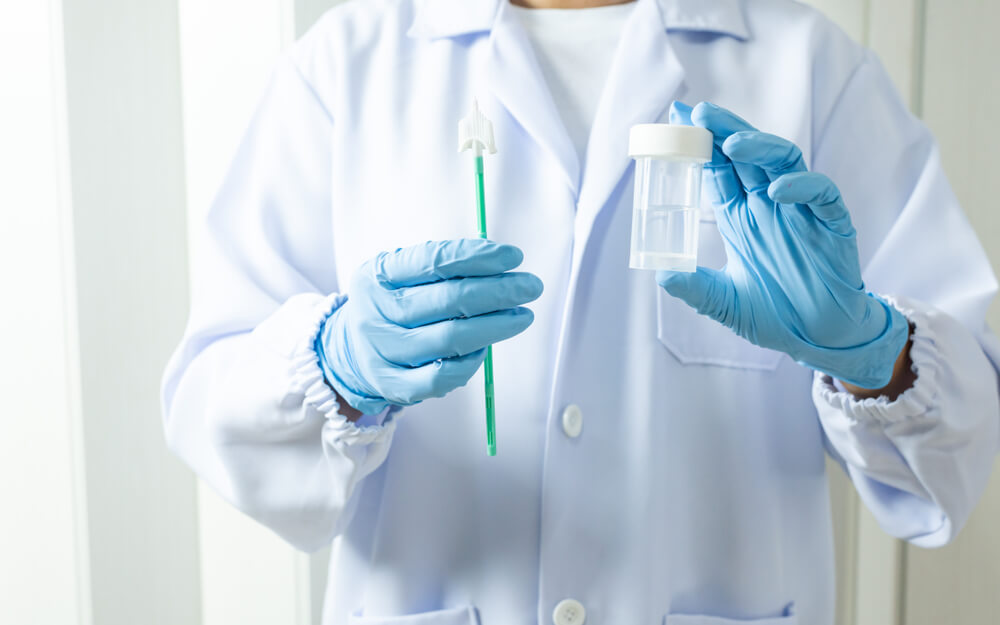If you are wondering what is a pap smear, what information you should know, if you can get a pap smear on your period, and similar, you are in the right place. A pap smear or a pap test is a procedure that includes a screening for cervical cancer. This is a test that can also track any potential changes on your cervix and in the cervical cells that might be the cause of cancer later on.
If you are looking for a service that includes a pap smear in Pembroke Pines, explore your options carefully because it is of the utmost importance to have a high-quality pap smear analyzed by an experienced doctor to be able to prevent any future development of malignant conditions. ACE OBGYN LLC is the place where you can get premium-level services and be sure that your gynecological check-up is done by an experienced, expert team.
What Is a Pap Smear and How Is It Performed?

As mentioned in the introduction, a pap smear is a test that can help you prevent the development of potential diseases, more particularly cervical cancer. The cervix is the lower part of the uterus, shaped like a cylinder, which connects the vagina to the uterus. The pap smear test shows whether there are any pre-cancerous or cancerous cells when it comes to your cervix and if there are any changes in comparison to your past examinations.
Regular pap smear testing is advised from when a woman turns 21 until age 65.
Certain medical conditions influence the frequency of pap testing, and they include:
- prior abnormal PAP smears
- HIV infection
- Prior cervical HPV Infection
- Weak immune system caused by chemotherapy, corticosteroid usage, or organ transplantation
- Exposure to a synthetic form of estrogen before birth
When it comes to the testing process, it is more or less a routine exam. Still, there are specific preparation steps you should take before coming to your exam, such as:
- It is not advised to have a pap smear on your period due to the presence of blood or endometrial cells
- Avoid having sexual relations prior to the test
- Avoid using lubricants prior to the test
- Do not use any powders or sprays on or near your vagina
- Do not put tampons, creams, medication, etc., into the vagina
- Do not douche or rinse the vagina with water or vinegar
Recently experts have been advising combining the pap smear with HPV (human papillomavirus) screening, which is done every five years. This is recommended because HPV can be a cause of cervical cancer, so doing both tests at the same time increases the chances of successful prevention.
Women after 65, who have not had abnormal pap smear results in the past, might be in the position to stop doing the test. However, it is still vital to first have a consultation with the chosen medical professional. When women have removed their cervix for different reasons, there is no need for further testing of this kind.
When it comes to the test procedure, the pap smear procedure lasts up to 15 minutes, while the test itself takes only a few minutes. You can do this test in your gynecologist’s office or at a clinic.
Here are the steps which are usually part of the pap examination:
- The patient lays down on the gynecological table and places the feet in the stirrups.
- They spread their legs so the doctor could access the intimate area.
- The doctor places a speculum (made of plastic or metal) into the vagina.
- They open the speculum to widen the wall of the vagina and have a view of the cervix.
- The doctor takes a swab and collects a sample of the cervical cells, but they can also use a spatula, a brush, a cytobrush, or a combination of the two.
- After the sample is taken, the swab is placed into a liquid and sent to a laboratory for analysis.
Although mostly painless, the procedure can be uncomfortable and cause slight pain and pressure. It is essential to relax your body as much as possible, be calm, and breathe deeply. Many women do not like going for a pap smear, but unfortunately, this test is one of the most accurate ways to track cervical cancer development. Unfortunately, the process may also become more painful after the 24th week of pregnancy, so make sure to do it before your reach that period.
It is also possible to feel cramping and pain after the test and vaginal bleeding. This is normal, but if anything else occurs or you feel more severe pain, contact your chosen doctor immediately.
Pap Smear Results
The results of the examination might come within a few days. There are two possible results: positive or normal and negative or abnormal pap smear.
An abnormal pap smear does not have to indicate that you have cancer; it only shows that there are cells on your cervix which have the potential to be pre-cancerous. Experts have divided the condition of these cells into levels which include:
- Atypia
- Mild
- Moderate
- Severe dysplasia
- Carcinoma in situ
There are different reasons why the results might be abnormal, aside from cancer and pre-cancer, and they include inflammations, HPV or other infections, lab test errors, ascus pap, and alike.
A more common diagnosis is mild abnormal cells, while severe abnormalities are much less common.
After the test results come in, your chosen medical practitioner will decide on further steps. If you have an inflammation or minor cell changes, some doctors tend to wait a bit longer to see what might occur and suggest another pap test after a few months. This is called ascus pap or atypical squamous cells of undetermined significance. If the results are still irregular after the second pap, you might be advised to have a colposcopy (using a bright light and a magnifier to examine the cervix and additionally check the problematic areas) or a biopsy (taking a sample of the tissue to inspect it more closely).
Generally, pap tests are very accurate, reducing cancer rates by 80%.
Can You Get a Pap Smear On Your Period

It is simple to schedule a pap smear when your period is regular, and you can calculate when it will occur. It can be challenging for women who are not blessed with these circumstances to schedule a pap test. Theoretically, you can have a pap test while on your period. Still, it is not advised because a heavy blood flow can interfere with the particularities of the cells, and it might cause errors during the analysis. In any case, consult your doctor before deciding when to have a pap smear.
Visit Us!
An accurate pap smear result can be of immense importance for the well-being of any woman. Our expert team has been monitoring and supporting many women regarding their reproductive health, so schedule an appointment with our medical staff to get proper support and guidance.

